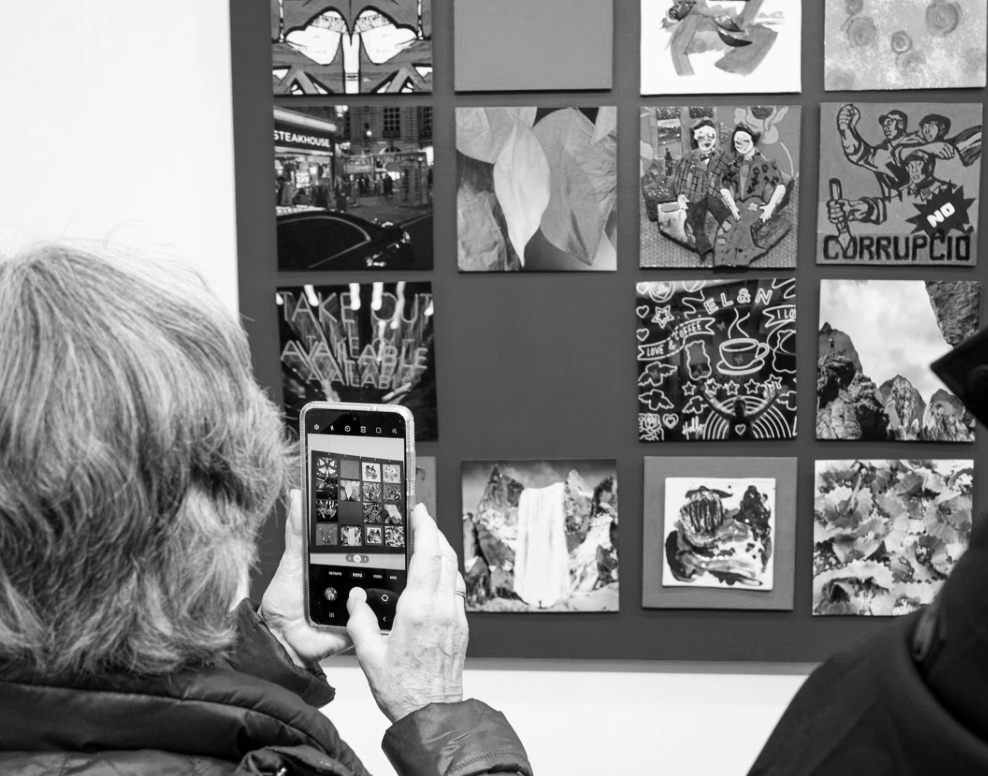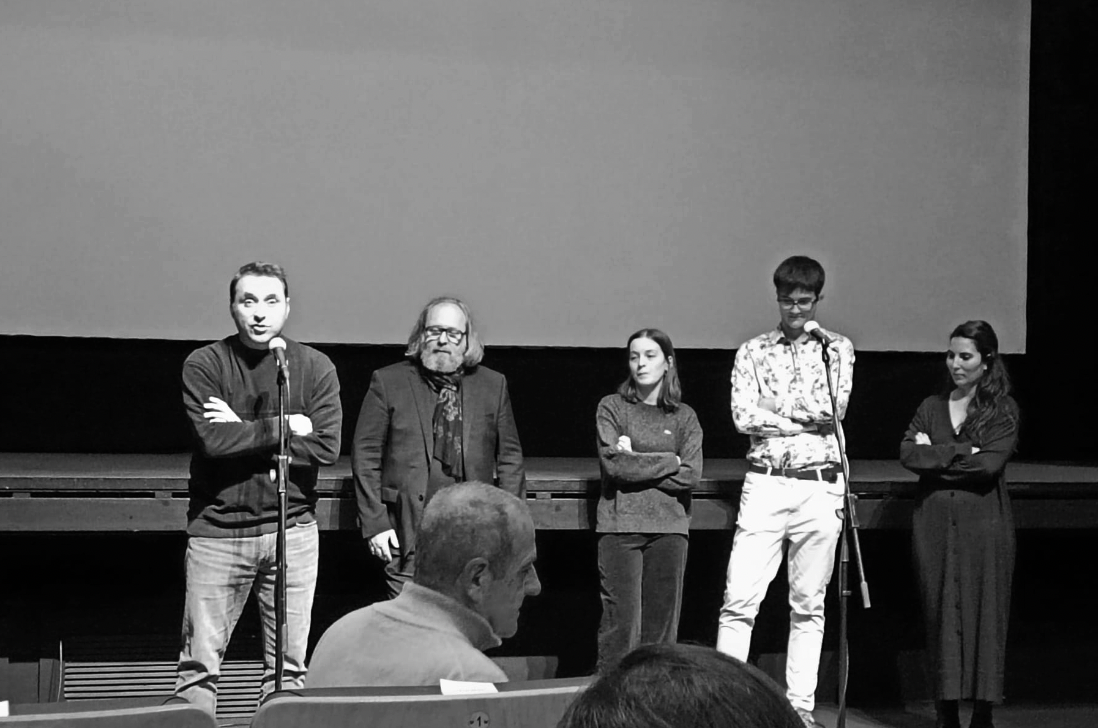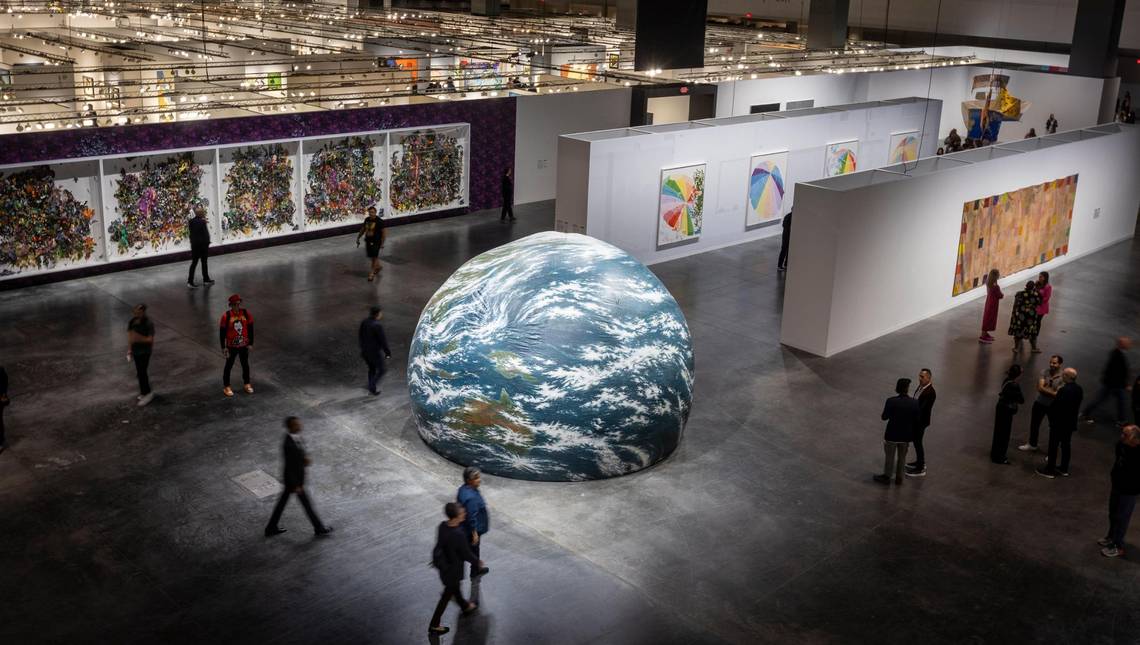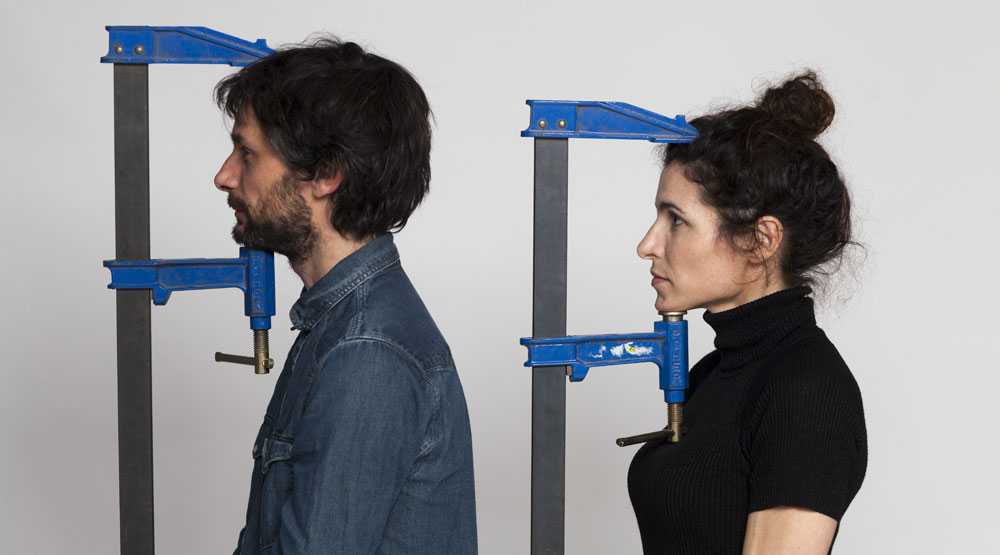Exhibitions
ORLAN, undoing the Western canon
The Government exhibition hall hosts a retrospective exhibition of Orlan, the artist who has used the body as raw material, until February
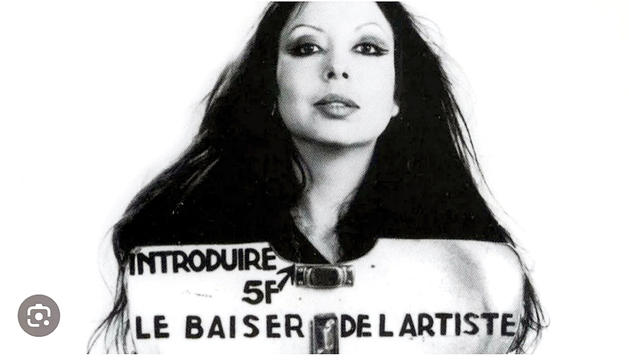
Although ORLAN's contribution to the history of performance art is essential, it would be a mistake to reduce his work to this practice. In fact, she herself has always emphasized that she is not linked to any of them, to any media. It is clearly the theme that prevails in his work, since he mainly questions social phenomena; then he wonders how to give the best materiality, the most pertinent form to his thought. This can be done through performance , but also photography, video, sculpture, collage and painting, using biotechnology, augmented reality, artificial intelligence and robotics. His most recent works include NFT and generative digital works. The artist does not reject any medium or any technology.
Since her debut in 1964, when she was only 16 or 17 years old (and when the age of majority in France was 21), ORLAN gives birth to herself, “ accouchait… d'elle m'aime ”. With astonishing precocity. While her destiny as a woman condemned the then-teenager to use her body and womb solely to give birth, the very young artist rebelled against her status as a woman and against the disgusting fate in which was intended The only part he conceded was that of his own role as an artist and that of his future work. The reappropriation of the body thus took shape, first of all through photographic staging. He quickly resorted to the distortion of perspective to alter the contours of his appearance, as in his spectacular Nude Descending the Stairs in Platform Heels , 1967. A man could never have done this representation of a woman's body . The photograph of the female nude was deeply questioned and renewed by the proposal of dissident canons.
ORLAN's body was once again the center of his iconic 1977 performance Le baiser de l'artiste (The Artist's Kiss), created at the Foire Internationale d'Art Contemporain in Paris. The artist invited the public to buy a real artist's kiss, a kiss with tongue, for the sum of five francs. This highlighted both the commodification of art and the two gender stereotypes that too often confine women, that of the saint and that of the whore. The resort to plastic surgery at the beginning of the nineties is part of the same process of questioning the female body. The transformation-appropriation allowed ORLAN to affirm, once again, the ownership of the female body by women, but also to question, this time, the canons of beauty. The artist risked monstrosity by deliberately grafting two bumps onto his forehead. It would then be up to him to make them, by his own will, organs of... seduction.
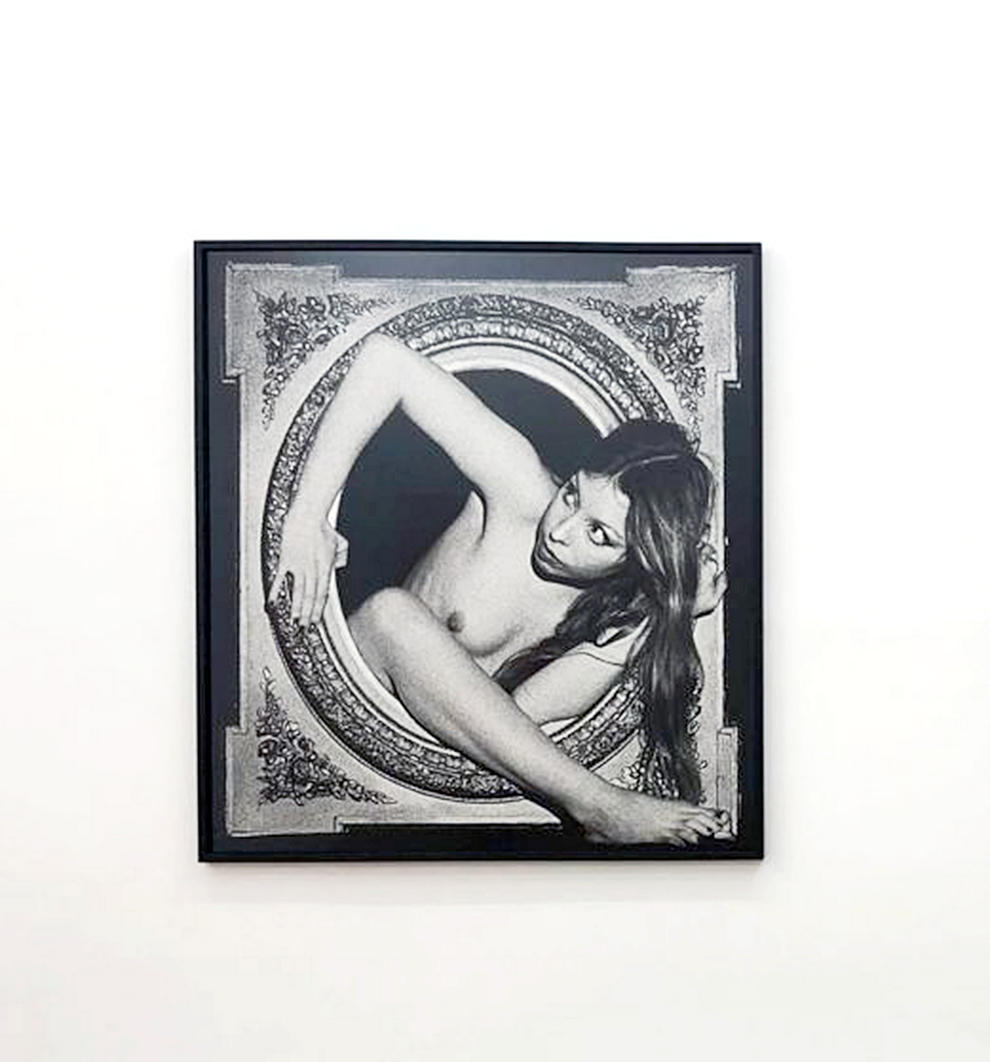
Similarly, the advent of computer retouching programs has opened the way to a wide variety of self-hybridizations. The different series should be understood as sets of post-operative works, since ORLAN always wanted to start with his new face adorned with the two protuberances. Thus, he has created series in which he has mixed his own image with that of works of art taken from the Western canon – Botticelli's Venus –, from pre-Columbian, African or, very recently, Mayan cultures. In this way, he has invited us to reconsider the notions of otherness and miscegenation, as well as the canons of beauty specific to each culture. In the search for this same approach of self-hybridization, the series The women who cry are angry is registered. This is a truly museum series, as the set was already exhibited in 2022 at the Musée Picasso in Paris, under the curatorship of Cécile Debray, director of the museum. On the occasion of the celebration of the fiftieth anniversary of Picasso's death, but also to commemorate the important role played by ORLAN as a pioneer of photography, this entire series of Femmes qui pleurent sont en colère will once again be presented to the Spanish public on 2023, in Madrid, at the Cercle de Belles Arts, during the Photo España festival.
Also in this case, ORLAN develops a work that is both political and decidedly feminist. Too often, Picasso's lovers have been systematically reduced to the role of mere muses, even if some of them, like Françoise Gilot or Daura Maar, were true creators. If Picasso glorified the youth and beauty of all these women, he did not hesitate to also represent their suffering, at the time of their separation and estrangement. As models, they were reduced to images, or even to objects, the true subject being the painter who represented them. Far from being a judgment against Picasso who, now dead, cannot defend himself, it is an anger against the accessory role of women - in particular for those who were or are artists - what ORLAN masterfully expresses throughout this series . Picasso and his work were not chosen by chance. Through the greatest creator of the 20th century, ORLAN invites us more generally to reconsider the place of women in the history of art, as a model and as an artist. This sad position only prolongs the disgusting fate that continues to be reserved for women in society. ORLAN therefore addresses the women of our time, inviting them to come out of the shadows, to emancipate themselves. The artist invites them to get angry in order to fully become subjects and stop being objects, in a decidedly feminist and contemporary message. In terms of form, while in his previous self-hybridizations ORLAN had produced soft and hyperrealistic images, for this new series he has created raw and violent digital collages . Thus, he has combined Picasso's portraits with elements of his own female face: crooked nose, bulging eyes, backward ears, open mouth about to bite. Until then a victim, the woman goes on the offensive, anger triggers the action. Indeed, ORLAN's work constitutes, from the beginning and at all times, an invitation to reject the injustice of the gender condition and to take decisively into one's own hands one's own destiny.
Text taken from the catalog of the ORLAN exhibition . The crying women are angry at RocioSantaCruz Gallery.





